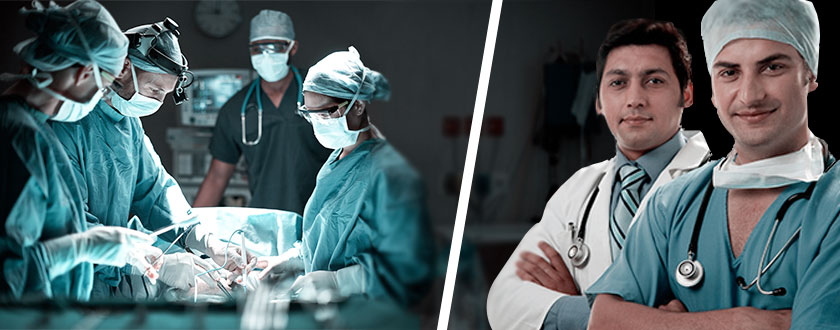General Surgery
- General Medicine & Internal Medicine
- General Surgery
- Critical Care & Emergency Medicine
- Orthopedics & Arthroscopic Surgery
- Joint Replacement surgery
- Obstetrics & Gynecology
- Pediatric Medicine & Pediatric Critical Care
- Pediatric Surgery
- Cardiology
- Endocrinology & Diabetology
- Nephrology
- Urology & Genitourinary Surgery
- Medical Gastroenterology
- Surgical Gastroenterology
- Neurology
- Neuro & Spine Surgery
- ENT
- Laparoscopic General Surgery
- Poly Trauma
- Opthamology
- Medical Oncology
- Surgical Oncology
- Plastic & Corrective Surgery
- Hepatology
- Dermatology
- Rheumatology
- Vascular Surgery
- Dental & Facio Maxillo Surgery
- Psychiatry & Family counseling
- Radiology
- Homeopathy
- Advanced Physiotherapy

GENERAL SURGERY
General surgery is a surgical speciality that focuses on abdominal contents including the oesophagus, stomach, small intestine, large intestine, liver, pancreas, gallbladder, appendix and bile ducts, and often the thyroid gland (depending on local referral patterns).
A general surgeon in our Hospital has specialized knowledge and experience related to the diagnosis, preoperative, operative, and postoperative management, including the management of complications, in nine primary components of surgery, all of which are essential to the education of a broadly based surgeon:
- Alimentary tract
- Abdomen and its contents
- Breast, skin, and soft tissue
Head and neck, including trauma, vascular, endocrine, congenital and oncologic disorders - particularly tumours of the skin, salivary glands, thyroid, parathyroid, and the oral cavity
Vascular system, excluding the intracranial vessels and heart
The endocrine system, including thyroid, parathyroid, adrenal, and endocrine pancreas
Surgical oncology, including coordinated multimodality management of the cancer patient by screening, surveillance, surgical adjunctive therapy, rehabilitation, and follow-up
Comprehensive management of trauma, including musculoskeletal, hand, and head injuries. The responsibility for all phases of care of the injured patient is an essential component of general surgery.
Complete care of critically ill patients with underlying surgical conditions, in the emergency room, intensive care unit, and trauma/burn units
The common operations, ranked by the frequency that they appeared as general surgeons' top procedure, include: cholecystectomy, colonoscopy, endoscopy, and skin excision
The most common general surgical procedures we perform in our hospital
- Ambulatory Phlebotomy
- Haemorrhoids
- Haemorrhoids (Advanced)
- Laparoscopic Colon Resection
- Laparoscopic Ventral Hernia Repair
- Thyroid Surgery
- Ultrasound
General surgery continues to be a field high in public and professional demand, and hence all our team members of the General Surgery domain keep themselves updated on every novel idea that is whispered in the field of General Surgery.
